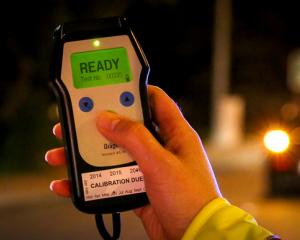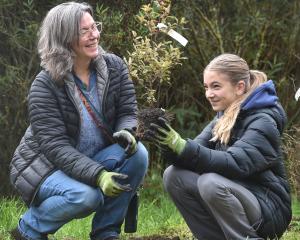
The plan will involve having electric vehicles to collect rubbish, establishing a $10,000 annual scholarship for waste minimisation initiatives, and trialling a new food processor on campus.
University head of sustainability Hilary Phipps said the university was working towards the goal of halving its waste to landfill by 2021, compared to the baseline set in 2012, meaning it had to change the way it handled waste.
The university has signed a seven-year contract with Waste Management, which will be trialling its new food waste processor, offering an annual $10,000 scholarship to research projects that could help reduce waste, employing a waste minimisation co-ordinator to be based on the Dunedin campus, and providing electric vehicles to fulfil the contract — including an electric van to empty outdoor bins and an electric rearload vehicle.
Waste Management’s sustainability strategy, For Future Generations, committed the company to converting 20 diesel trucks to electric by the end of 2020, adding to the electric trucks Waste Management already has in its fleet.
The university is also offering more options for separating waste and recycling during student flat clean-up days, when usually only skips are provided on streets.
The Dunedin campus recycled 13% of its general waste last year — 375 tonnes compared to the 2566 tonnes it sent to landfill.
‘‘Although this was a slight improvement on 2017, it highlights the scale of the challenge ahead and the importance of each of us doing what we can to minimise waste by making smart purchasing decisions, reducing, reusing and recycling,’’ Dr Phipps said.
That compared with the 2017 figures — the Dunedin campus recycled 11.2%, or 326 tonnes of waste, sending 559 tonnes to landfill.
Waste Management Otago regional manager Greg Nel said his company had invested in the food processing trial, while also changing to electric-powered vehicles and employing a full-time waste minimisation co-ordinator.
The food processing solution removed about 90% of water from food, leaving behind a much smaller organic residue that can be composted.
Waste Management planned to assess how much work the equipment could do and how many more food waste processors the Dunedin campus might need, along with the best options for residential colleges.












